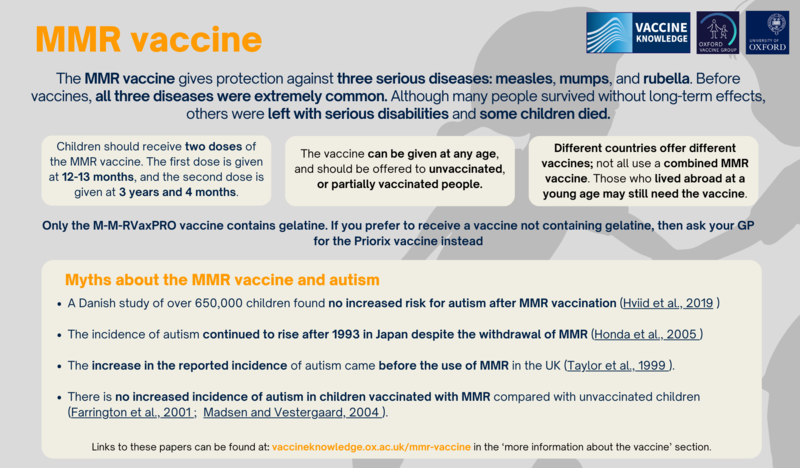|
The MMR vaccine gives protection against three serious diseases: measles, mumps, and rubella. According to the World Health Organization in 2023 an estimated 107,500 people died globally from measles – mostly children under the age of five years. As well as death, measles can also cause serious complications, such as pneumonia and encephalitis - inflammation of the brain. In the UK, as in Europe, cases of measles have been rising over the past few years. According to the UK Health Security Agency (UKHSA), during 2024, there were almost 3,000 laboratory confirmed cases of measles, compared with just 54 cases in the whole of 2022. And between January 2025 and the end of June 2025, there were 529 laboratory confirmed cases. Some 44% of these were in London, with 32% of cases in young children, aged one to four, and 22% in children aged five to 10 years old. The rise is mainly down to a fall in the number of children being vaccinated. Mumps can also lead to serious complications, such as meningitis and encephalitis. Rubella can be very dangerous for pregnant women, causing miscarriage or serious abnormalities in the unborn baby. Children get two doses of the MMR vaccine. The first dose is given at 12-13 months in the UK schedule. Currently a booster dose is given at 3 years and 4 months at the same time as the preschool booster. From January 2026 children will get their second dose at 18 months instead. This change affects children born since July 2024, who will get the earlier 18-month dose. It is hoped this change will increase the number of children fully vaccinated with the MMR. The vaccine works very well. Two doses are 96% effective against measles, around 86% effective against mumps, and 89% effective against rubella. Before the introduction of vaccines, all three diseases were extremely common; most people had them at some point, usually as children. Although many people survived without long-term effects, others were left with serious disabilities and some children died. There is no link between the MMR vaccine and autism. Despite widespread misinformation, multiple studies have shown that there is no link between the MMR vaccine and autism, and previous studies that did report a link have been discredited. See 'more information about the vaccine' below. 
|



